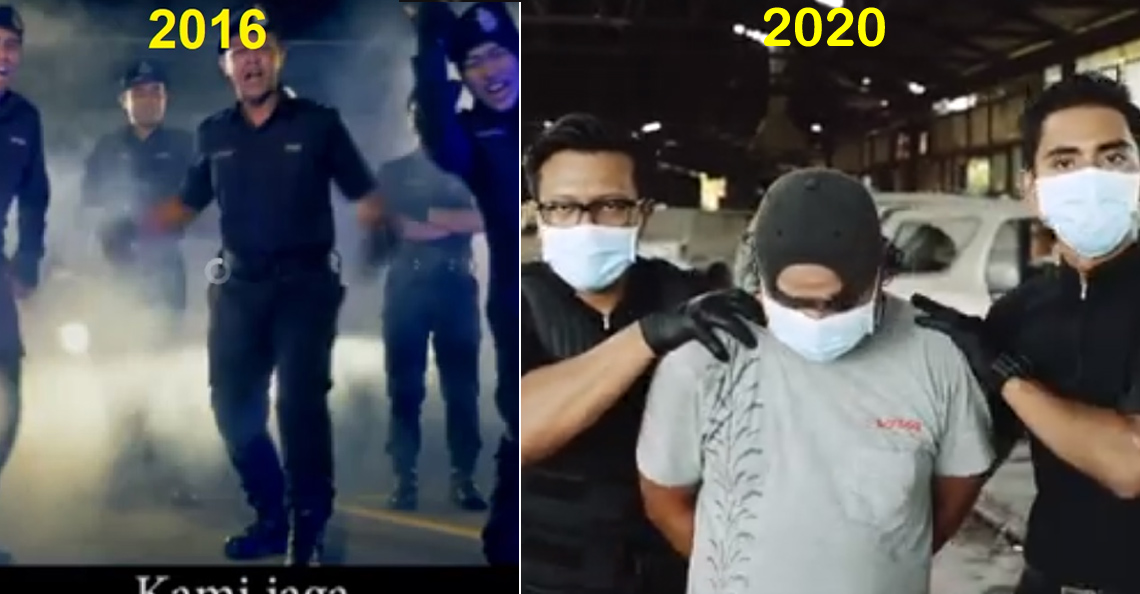Like Lofi Girl, Cilisos also kena fake copyright claim. Let’s learn about takedown scams
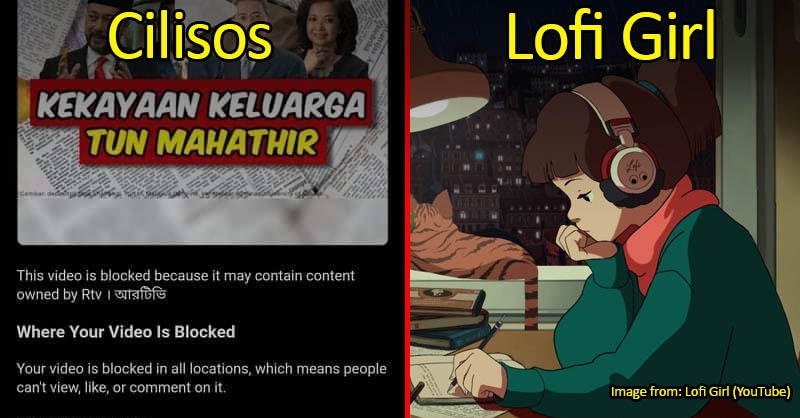
- 101Shares
- Facebook76
- Twitter6
- LinkedIn6
- Email7
- WhatsApp6
You can imagine the resounding wails across the world when everyone’s favorite YouTube work/chill/sleep/study music channel, Lofi Girl, was struck with a copyright claim from Malaysian music label FMC and taken down, ending a 2 year unbroken run of relaxing music.
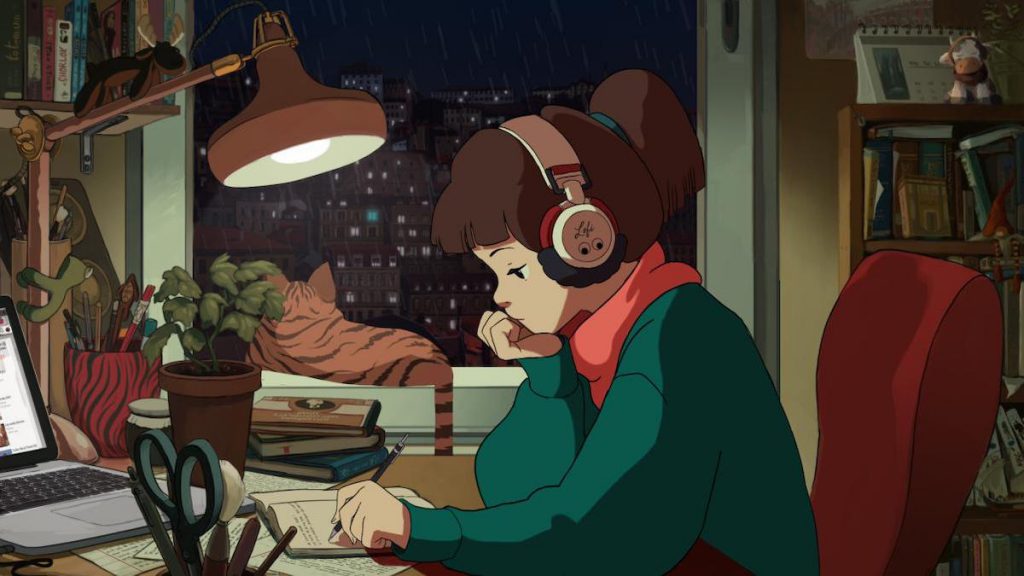
Although thankfully Lofi Girl was allowed to resume her studying, the fact that she was even temporarily taken down highlights a bigger problem for legit content creators. To explain why, we’ll use examples of some false copyright claims that were sent our way in the past.
Some of our videos were blocked after getting reported for copyright infringement
You see, the thing about copyright claims is that sites, most notably YouTube and Facebook, have an automated ‘block first, investigate later’ policy when they receive a ‘valid’ copyright complaint. The reason is that in case there is actual copyright infringement involved, they’re taking the ‘safe’ path in order to avoid legal action.
We learned this the hard way when we found some of our videos (that WE shot) had been blocked after supposed copyright claims. Here’s a screenshot of what that looks like:
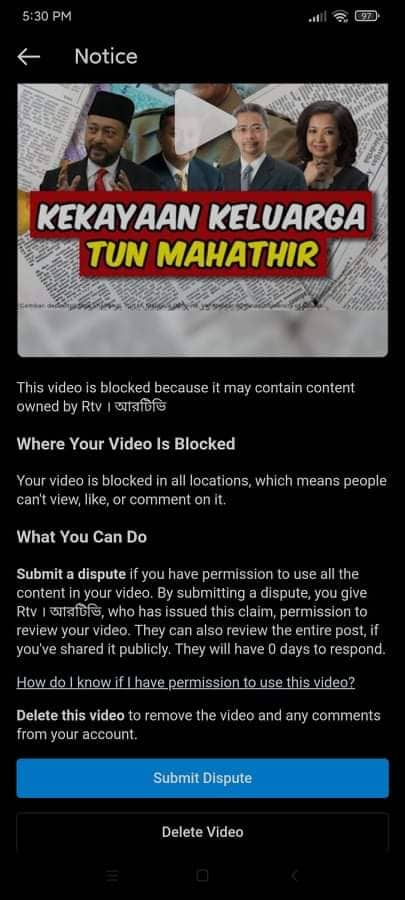
And although we submitted disputes, as we mentioned before, the sad part is that our videos were unviewable until after we the dispute was settled, following which, the omnivalent Council of Zuckerberg relented and allowed us to resume showing our videos.
However, upon further digging, we detected a pattern, and found out that…
Scammers use this tactic to steal your money
Whoever knew that you could be rewarded for submitting a false copyright claim?
Yes, as it turns out, scammers have come up with an ingenious way of getting a share of your content revenue. Take a look at this screenshot from another complaint lodged against us:
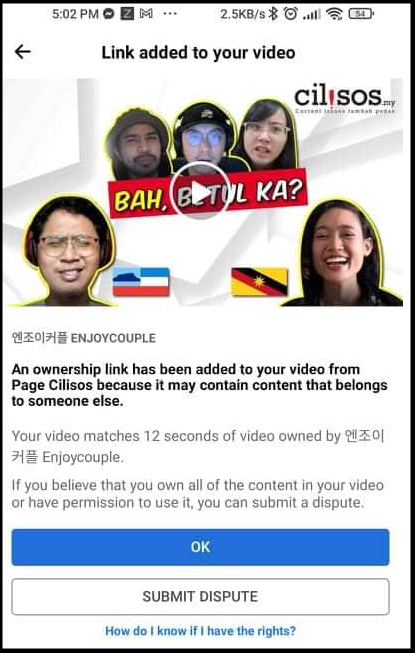
Looks pretty unassuming, and if you didn’t know what you were doing, you’d probably click ‘OK’ without a second thought. But if the content was 100% yours (or used royalty-free content), that would be a huge mistake.
Why? Well, we found out the answer to that after looking deeper into the Korean FB page that lodged the complaint (엔조이커플 Enjoycouple), and seeing this post from another content creator who had also fallen victim to this:
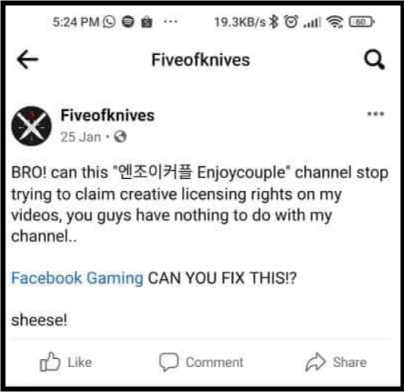
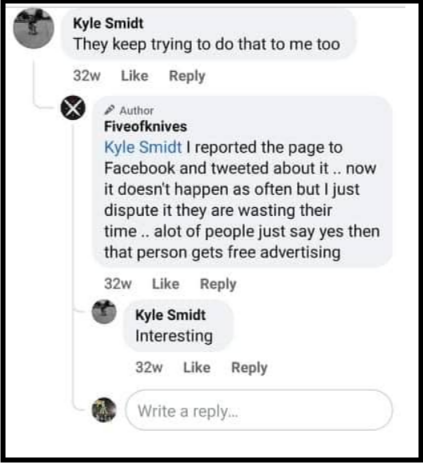
You see, by clicking ‘OK’, you’d be agreeing that at least some part of your content belongs to the complainant. When that happens, your revenue from monetized content will be split with that party, meaning that a portion of whatever you make goes to them.
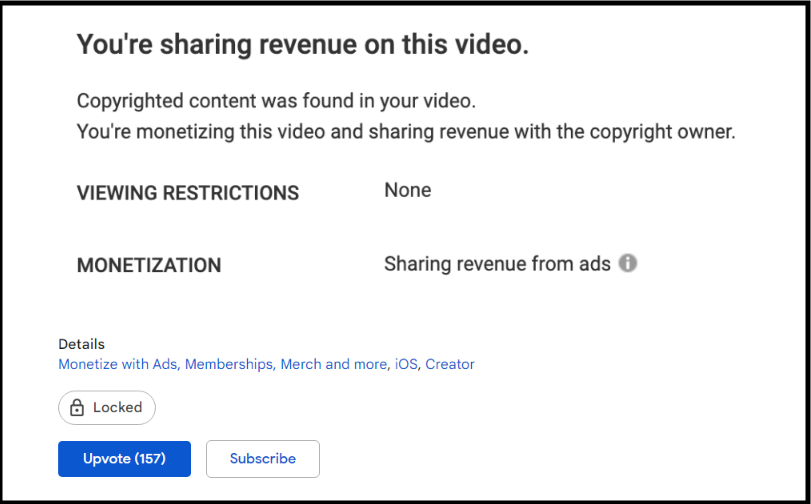
Of course, the EnjoyCouple page itself looks pretty legit on its own, with their ‘verified’ blue tick and all. So we could give them the benefit of the doubt and assume that, like they too, like FMC, could also have been hacked. Buuuut, they have removed dispute claims in the past, which does look kinda sus.
Anyway, perhaps the worst part to all of this is…
Sites like YouTube may not be able to differentiate a false claim from a legit one
One thing the whole Lofi Girl episode exposed is that websites’ DMCA policies are prone to abuse, and in some ways, may hurt content creators more than they help them. Because while it costs nothing to lodge a complaint (maybe your account gets terminated, but that means nothing if you’re using a dummy account), the content creators being reported could stand to lose views and income:
“This event has shone a light on an underlying problem on the platform: It’s 2022, and there are countless smaller creators out there, many of which engaged in this discussion, that continue to be hit daily by these false claims on both videos and livestreams.” – Lofi Girl
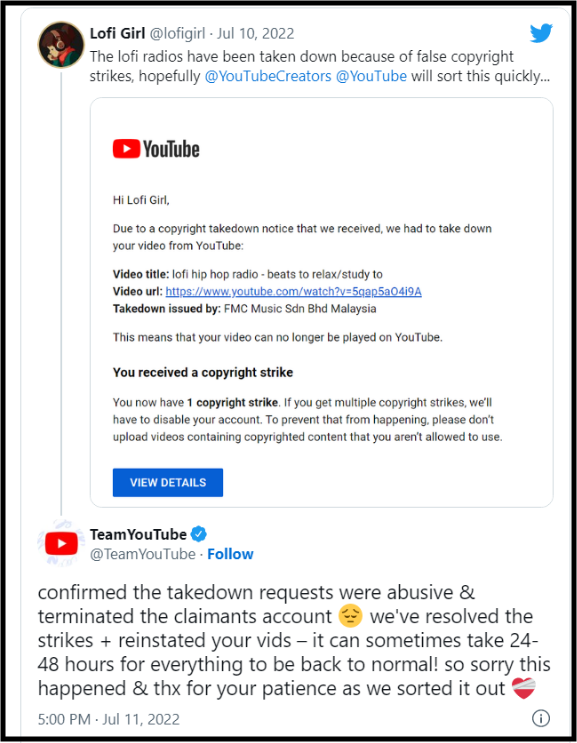
On the other hand, it’s totally understandable why DMCA laws exist in the first place, but perhaps it might be helpful for sites to improve their automated DMCA response systems. Or something. We dunno, we’re just writers.
- 101Shares
- Facebook76
- Twitter6
- LinkedIn6
- Email7
- WhatsApp6

